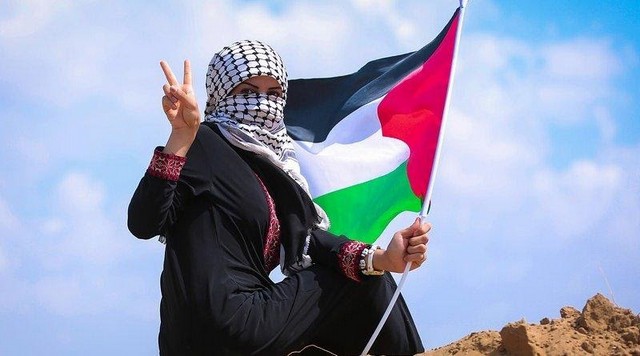By Ramzy Baroud
72 years after the destruction of historic Palestine at the hands of Zionist militias lies an opportunity to reassert the centrality of the right of return for 5 million Palestinian refugees.
Just 48 hours before thousands of Palestinians rallied on the streets, US Secretary of State Mike Pompeo paid an eight-hour visit to Israel to discuss the seemingly imminent Israeli annexation (theft) of nearly 30 percent of the West Bank. “The Israeli government will decide on the matter, on exactly when and how to do it,” Pompeo said. Clearly, the government of Benjamin Netanyahu has America’s blessing to further its colonization of occupied Palestine, to entrench its apartheid regime, and to act as if the Palestinians simply do not exist.
Considering the US’ massive political sway, why do Palestinians insist on making demands which, according to the pervading realpolitik of the so-called Palestinian-Israeli conflict, seem unattainable? Since the start of the peace process in Oslo in the early 1990s, the Palestinian leadership has engaged Israel and its Western benefactors in a useless political exercise that has, ultimately, worsened an already terrible situation. After more than 25 years of haggling over bits and pieces of what remains of historic Palestine, Israel and the US are now plotting the endgame, while demonizing the very Palestinian leaders that participated in their futile political charade.
Strangely, the rise and demise of the so-called peace process did not seem to affect the collective narrative of the Palestinian people, who still see the Nakba — not the Israeli occupation of 1967 and certainly not the Oslo Accords — as the core point in their struggle against Israeli colonialism. This is because the collective Palestinian memory remains completely independent from Oslo. For Palestinians, memory is an active process; it is not a docile, passive mechanism of grief and self-pity that can easily be manipulated, but a generator of new meanings. Despite the numerous unilateral measures taken by Israel to determine the fate of the Palestinian people, the blind and unconditional US support of Israel, and the unmitigated failure of the Palestinian Authority to mount any meaningful resistance, Palestinians continue to remember their history and understand their reality based on their own priorities.
Palestinians have been accused of being unrealistic, of “never missing an opportunity to miss an opportunity,” and even of extremism for simply insisting on their historical rights in Palestine, as enshrined in international law. These critical voices are either supporters of Israel or are simply unable to understand how Palestinian memory factors in shaping the politics of ordinary people, independent of the quisling Palestinian leadership or the seemingly impossible-to-overturn status quo. True, the two trajectories — the stifling political reality and the people’s priorities — seem to be in a constant state of divergence. The more belligerent Israel becomes, the more stubbornly Palestinians hold on to their past. There is a reason for this.
Occupied, oppressed and confined to refugee camps, Palestinians have little control over many of the realities that directly impact their lives. There is little that a refugee from Gaza can do to dissuade Pompeo from assigning the West Bank to Israel, or that a Palestinian refugee from Ain Al-Hilweh in Lebanon can do to compel the international community to enforce the long-delayed right of return. But there is a single element that Palestinians, regardless of where they are, can control: Their collective memory, which remains the main motivator of their legendary steadfastness.
Israel is afraid of Palestinian memory, since it is the only facet of its war against the Palestinian people that it cannot fully control. The more Israel labors to erase the collective memory of the Palestinian people, the more Palestinians hold on tighter to the keys of their homes and to the title deeds of their land in their lost homeland. There can never be a just peace in Palestine until the priorities of the Palestinian people — their memories and their aspirations — become the foundation of any political process with the Israelis.
Ramzy Baroud is an internationally-syndicated columnist and the editor of PalestineChronicle.com.
20 May 2020
Source: palestineupdates.com

